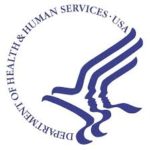The following is the latest health policy news from the federal government for March 1-7. Some of the language used below is taken directly from government documents.
Congress
 On Wednesday, March 16 the House passed, by a vote of 339-85, the first package of spending bills to fund some federal agencies through the remainder of the 2024 federal fiscal year. The House bills include several health care provisions extending programs that were set to expire on Friday, March 8. The bills would extend the following provisions and programs through December 31, 2024:
On Wednesday, March 16 the House passed, by a vote of 339-85, the first package of spending bills to fund some federal agencies through the remainder of the 2024 federal fiscal year. The House bills include several health care provisions extending programs that were set to expire on Friday, March 8. The bills would extend the following provisions and programs through December 31, 2024:
- The continued delay of cuts to Medicaid disproportionate share (Medicaid DSH) allocations to the states.
- Funding for community health centers, graduate medical education (GME) payments for teaching health centers, and the National Health Service Corps.
- The 1.0 Medicare work geographic index floor.
- The Medicare-Dependent Hospital (MDH) program.
- Increased eligibility for the Medicare low-volume hospital adjustment.
The bill also addresses Medicare payments to physicians for 2024, increasing the conversion factor adjustment of the Medicare physician fee schedule from 1.25 percent to 2.93 percent, an increase of 134 percent that, while considerable, does not fully compensate for the 3.4 percent pay cut imposed by the 2024 Medicare physician fee schedule.
The bill does not include a much-discussed provision that would have required Medicare to pay for outpatient services on a site-neutral basis.
The bill now goes to the Senate, where it is expected to pass before a partial shutdown of the federal government would take effect on Saturday morning, March 9. Congress has until March 22 to pass the remaining six appropriations bills, including the bill that funds the Department of Health and Human Services.
 The Cyberattack on Change Healthcare
The Cyberattack on Change Healthcare
- CMS announced a series of steps to help providers continue to serve patients in the wake of the cyberattack on Change Healthcare that has affected hospital and physician billing, providers’ ability to verify coverage and eligibility for care, prior authorization requests, the ability of patients to obtain prescriptions, the ability of health care payers to pay providers, and more. Those steps are:
- Medicare providers needing to change the clearinghouses they use for claims processing during these outages should contact their Medicare Administrative Contractor (MAC) to request a new electronic data interchange enrollment for the switch. The MAC will provide instructions based on the specific request to expedite the new electronic data interchange enrollment. CMS has instructed the MACs to expedite this process and move all provider and facility requests into production and be ready to bill claims quickly. CMS is strongly encouraging other payers, including state Medicaid and CHIP agencies and Medicaid and CHIP managed care plans, to waive or expedite solutions for this requirement.
- CMS will issue guidance to Medicare Advantage organizations and Part D sponsors encouraging them to remove or relax prior authorization, other utilization management practices, and timely filing requirements during these system outages. CMS also encourages Medicare Advantage plans to offer advance funding to providers most affected by this cyberattack.
- CMS strongly encouraged Medicaid and CHIP managed care plans to adopt the same strategies of removing or relaxing prior authorization and utilization management requirements and to consider offering advance funding to providers on behalf of Medicaid and CHIP managed care enrollees to the extent permitted by the state.
- If Medicare providers are having trouble filing claims or other necessary notices or other submissions they should contact their MAC for details on exceptions, waivers, and extensions and contact CMS regarding quality reporting programs.
- CMS has contacted all the MACs to make sure they are prepared to accept paper claims from providers that need to file them. While CMS acknowledged that electronic billing is preferable for everyone, the MACs must accept paper submissions if a provider needs to file claims in that manner.
- CMS has asked the MACs to consider provider requests for accelerated Medicare payments. CMS is working with the MACs to provide additional information to them about the specific items and information providers’ requests should include. The MACs should have this information no later than the end of this week.
Learn more from this HHS news release.
- In addition, Optum, a company that, like Change Healthcare, is part of United Healthcare, has “… established a temporary funding assistance support program to help with short-term cash flow needs” – “not a program for providers who have had claims submission disruptions but rather for those whose payment distribution has been impacted.” Learn more from this Optum explanation, which includes information about how to pursue temporary funding.
 Centers for Medicare & Medicaid Services
Centers for Medicare & Medicaid Services
- CMS has published a bulletin on “stay of enrollment,” a new Medicare enrollment status. Stay of enrollment is a CMS designation that seeks to be less burdensome to providers and suppliers than a deactivation or revocation of Medicare enrollment. A stay of enrollment is a preliminary, interim status representing a pause in enrollment. Learn more from this CMS bulletin.
- CMS has released updated ICD-10 MS-DRG V41.1 definitions manual files. The update includes ICD-10-PCS code 00H005Z, inadvertently omitted from the previous release, and an updated appendix C but does not affect the V41.1 Grouper Software or the Definitions of Medicare Code Edits V41.1 file. Find the updated files here.
- CMS has published a bulletin on the proper use of modifiers 59, XE, XP, XS, and XU in Medicare billing. Find the bulletin here.
- CMS has released the final part one guidance for its new Medicare Prescription Payment Plan, which beginning in 2025 will give people with Medicare prescription drug coverage (Medicare Part D) the option to pay out-of-pocket costs in monthly payments spread out over the year rather than requiring them to pay in full at the pharmacy counter each time they fill a prescription. This guidance seeks to help ensure that Medicare Part D plan sponsors can implement the Medicare Prescription Payment Plan when it takes effect next year. Learn more about the program and the new guidance from this CMS news release, a CMS fact sheet, and from the guidance itself. Learn more about the Medicare Prescription Payment Plan here and find a draft of part two of CMS’s planned guidance here.
- In the next step toward launching its Cell and Gene Therapy Access Model, which will seek to improve the lives of people with Medicaid living with rare and severe diseases by increasing access to potentially transformative treatments, CMS has released a request for applications (RFA) from pharmaceutical manufacturers that participate in the Medicaid Drug Rebate Program and market FDA-approved gene therapies for the treatment of sickle cell disease. Learn more about the Cell and Gene Therapy Access Model here and find the RFA here. CMS intends to issue another RFA this summer inviting states to participate in the program and an accompanying notice of funding opportunity. CMS expects to launch the program next January.
- CMS has sent an information bulletin to state Medicaid and CHIP programs describing strategies for improving the delivery of tobacco cessation services; among other things, the bulletin addresses how state agencies can work with providers to deter tobacco use. Find the bulletin here.
- CMS is seeking comment on proposed refinements to the Quality Rating System (QRS) and Qualified Health Plan (QHP) Enrollee Experience Survey included in its “Draft 2024 Call Letter for the Quality Rating System and the Qualified Health Plan Enrollee Experience Survey.” In the 2024 document CMS is requesting feedback on topics including refinements to the QRS measure set, advancing health equity, Electronic Clinical Data System reporting, and QHP Enrollee Survey updates. Learn more from this CMS notice.
- CMS has hired a contractor to assist with the development and evaluation of exchange health plan quality initiatives (QRS/QIS) and is seeking stakeholders and experts to serve on a technical expert panel and provide direction and input on this work. This panel will advise on the continued implementation of the QRS and QIS by providing input on topics such as public engagement, guidance materials, data analysis and methodology, and measure set refinements. Learn more about the panel, its anticipated work, the background CMS seeks among participants, the time commitment involved, and how to submit nominations from this CMS notice (click “Development and Evaluation of Exchange Health Plan Quality Initiative (QRS/QIS.”) Nominations are due by March 15.
 Department of Health and Human Services
Department of Health and Human Services
- HHS and its Health Resources and Services Administration (HRSA) have announced the launch of HRSA’s $50 million Rural Opioid Treatment and Recovery Initiative. Funding will support establishing and expanding comprehensive substance use disorder treatment and recovery services in rural areas, including by increasing access to medications for opioid use disorder. Learn more about the program from this HHS news release. Learn more about the available funding, its intended uses, and eligibility from this grant notice. Applications are due by May 6.
- HHS, the Justice Department’s Antitrust Division, and the Federal Trade Commission have jointly launched a cross-government public inquiry into private equity and other corporations’ increasing control over health care, issuing a request for information seeking public comment on deals conducted by health systems, private payers, private equity funds, and other alternative asset managers that involve health care providers, facilities, or ancillary products or services. The request for information also seeks information on transactions that do not have to be reported to the Justice Department or the Federal Trade Commission for antitrust review. Learn more from this HHS news release and the request for information. Comments are due by May 6.
- HHS’s Office of the Assistant Secretary for Planning and Evaluation has published a fact sheet outlining the potential impact of the Inflation Reduction Act’s prescription drug-related provisions for rural Medicare beneficiaries. Find the fact sheet here.
HHS Newsletters
Medicare Payment Advisory Commission (MedPAC)
MedPAC has submitted comments to CMS in response to CMS’s advance notice of methodological changes for calendar year 2025 for Medicare Advantage capitation rates and Part C and Part D payment policies. Learn more from MedPAC’s comment letter to CMS.
Medicaid and CHIP Payment and Access Commission (MACPAC)
In a new issue brief, MACPAC compares the differences in Medicaid beneficiaries’ experiences with testing and diagnosis of COVID-19. The brief examines the severity of symptoms between Medicaid beneficiaries, privately insured individuals, and those without insurance; explores delayed and forgone care because of the pandemic; and considers the impact of race and ethnicity on the experiences of Medicaid beneficiaries during the pandemic. Learn more from MACPAC’s “Access in Brief: Effects of COVID-19 on Medicaid Beneficiaries’ Health and Health Care Utilization.”
 Stakeholder Events
Stakeholder Events
MedPAC – Commissioners Meeting – March 8
MedPAC’s commissioners will hold their next public meeting on Thursday, March 7 and Friday, March 8. Find an agenda for the meeting here and a link to register to participate in the Friday, March 8 session.
MACPAC – Commissioners Meeting – March 8
MACPAC’s commissioners will hold their next public meeting on Thursday, March 7 and Friday, March 8. Go here to register to participate.
CMS – Hospital Quality Initiative Open Door Forum – March 12
CMS will host a hospital quality initiative open door forum on Tuesday, March 12 at 3:00 (eastern). Go here to register to participate.
CMS – ICD-10 Coordination and Maintenance Committee Meeting – March 19-20
CMS’s ICD-10 Coordination and Maintenance Committee will meet virtually on Tuesday, March 19 and Wednesday, March 20 at 9:00 (eastern) on both days. Go here for information about the procedure and diagnostic codes to be addressed during the meeting and to register to participate.
CMS – Skilled Nursing Facility/Long-Term Care Open Door Forum – March 21
CMS will host a skilled nursing facility/long-term care open door forum on Thursday, March 21 at 2:00 (eastern). Go here to register to participate.
HHS – Office of Climate Change and Health Equity – Webinars on Taking Advantage of Provisions in the Inflation Reduction Act – March 21 (and April 4 and 18)
HHS’s Office of Climate Change and Health Equity is holding a series of webinars to help health care providers, and especially safety-net organization, take advantage of the tax credits, grants and other supports made available by the Inflation Reduction Act, which creates opportunities for health sector organizations to invest in clean energy, building efficiency, infrastructure resilience, and more. The next webinar will be held on Thursday, February 8, with additional events scheduled on February 22, March 7 and 21, and April 4 and 18. Separate break-out sessions will be held for essential hospitals, community health centers, and rural providers. Go here to learn more about the webinar series, future events, and the break-out sessions; go here for a recording of a November briefing on Inflation Reduction Act resources available to health care providers; and go here to register to participate.
CMS – Interoperability and Prior Authorization Final Rule Education Session – March 26
CMS’s Office of Burden Reduction & Health Informatics will host a virtual education session on Tuesday, March 26 at 1:00 (eastern) on the CMS Interoperability and Prior Authorization final rule. Questions can be submitted beforehand via the registration form. The webinar, according to CMS, will be appropriate for patients, providers, and administrative, health IT, and government affairs professionals. Go here to register to participate and to submit questions you would like addressed during the session.
CMS – Achieving Full Annual Skilled Nursing Facility Annual Update – March 26
CMS will hold a webinar to educate providers about current changes and to help providers learn how to again a full annual update under its Skilled Nursing Facility Quality Reporting Program. The webinar will be held on Tuesday, March 26 at 1:00 (eastern). Go here to learn more about the webinar and to register to participate.
CMS – Health Equity Conference – May 29-30
CMS will hold its second annual CMS Health Equity Conference on Wednesday, May 29 and Thursday, May 30. The free, hybrid conference will be held in person in Bethesda, Maryland and available online for virtual participation and involve health equity leaders from federal and local agencies, health provider organizations, academia, community-based organizations, and others. Conference participants will hear from CMS leadership on recent developments and updates to CMS programs; explore the latest health equity research; discuss promising practices and creative solutions; and collaborate on community engagement strategies. CMS is now accepting proposals for breakout session speakers and poster presenters. Learn more from the conference web page.

 Centers for Medicare & Medicaid Services
Centers for Medicare & Medicaid Services Stakeholder Events
Stakeholder Events